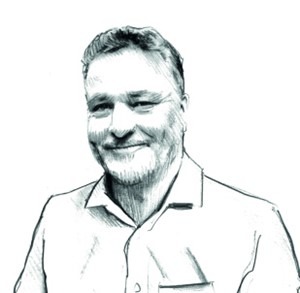Our relationship with money and, in particular, its accumulation is a basic part of how our society functions. We need enough for today and we need to put enough away for tomorrow.
This financial planning is, for most of us, not something that is optional. Your clients need to keep an eye on their spending and to have some sort of plan for their saving. How they go about it, and the focus of your advice, will have a huge impact on their wellbeing.
To illustrate, I would like to draw an analogy with my vinyl collection.
I’ve been a music addict since I woke up at the age of 13 and heard on the radio that John Lennon had died. I went downstairs and told my mum what had happened. She was as shocked as I was. I then asked her: “Who is John Lennon?”
If we use our wealth to buy things that show people we have wealth, we have become money’s servant
My first record was The Fine Art of Surfacing by the Boomtown Rats, swiftly followed by The Beatles’ Please Please Me album. I now own some 1,500 records and 2,000 CDs. I burn everything onto a hard drive.
If you clicked play on the first track on that hard drive, and played through each track continuously, 24 hours a day, it would take 137 years to play all the music I own. And yet I am still buying more records.
My preferred medium is vinyl. There is something visceral about holding an original first press copy of Revolver by The Beatles, and imagining a student in 1966, sat in a smoky bedsit in London, hearing that groundbreaking music for the first time.
I’ve been a music addict since I woke up at the age of 13 and heard on the radio that John Lennon had died
A few years ago, I started to buy and sell vinyl at local markets. When I buy a collection from someone, I usually find one or two albums that make their way onto my own shelves. I also buy new albums by my favourite artists (streaming is not only terrible quality but is stealing a living from the artist).
I am addicted to buying music.
What is the analogy with money? I have enough records. And yet I still buy more. This is a hobby and something that gives me joy. It is not an obsession. I do not spend money I cannot afford (although I can’t pretend that was always the case!).
When it comes to accumulating records, therefore, it is for a purpose. I collect records to enjoy the music and all that goes with it (the personalities, the stories, the joy of rock and pop).
If money is a servant, we would use our wealth to generate wellbeing. For ourselves; for our loved ones; for people who need support
I do sometimes sell to collectors who have a different purpose. They want to own something that nobody else has. They are not so concerned about the music but, for example, whether the Apple logo on the back of Abbey Road is slightly to the left (a misprint that significantly increases the value).
When we accumulate money, what is the purpose?
If money is a servant, then we would use our wealth to generate wellbeing. This could be for ourselves; for our loved ones; for people who need support.
Next time you talk to a client, why not have this wellbeing aspect in mind
If we use our wealth to buy things that show people we have wealth, we have become money’s servant. This is akin to the collector buying records simply to say that they owned them.
If we use our wealth to generate more wealth, with no thought as to its purpose, then money has become our master.
Next time you talk to a client, why not have this wellbeing aspect in mind. What is their objective for their financial plan – is it to accumulate wealth or wellbeing?
By: Chris Budd

